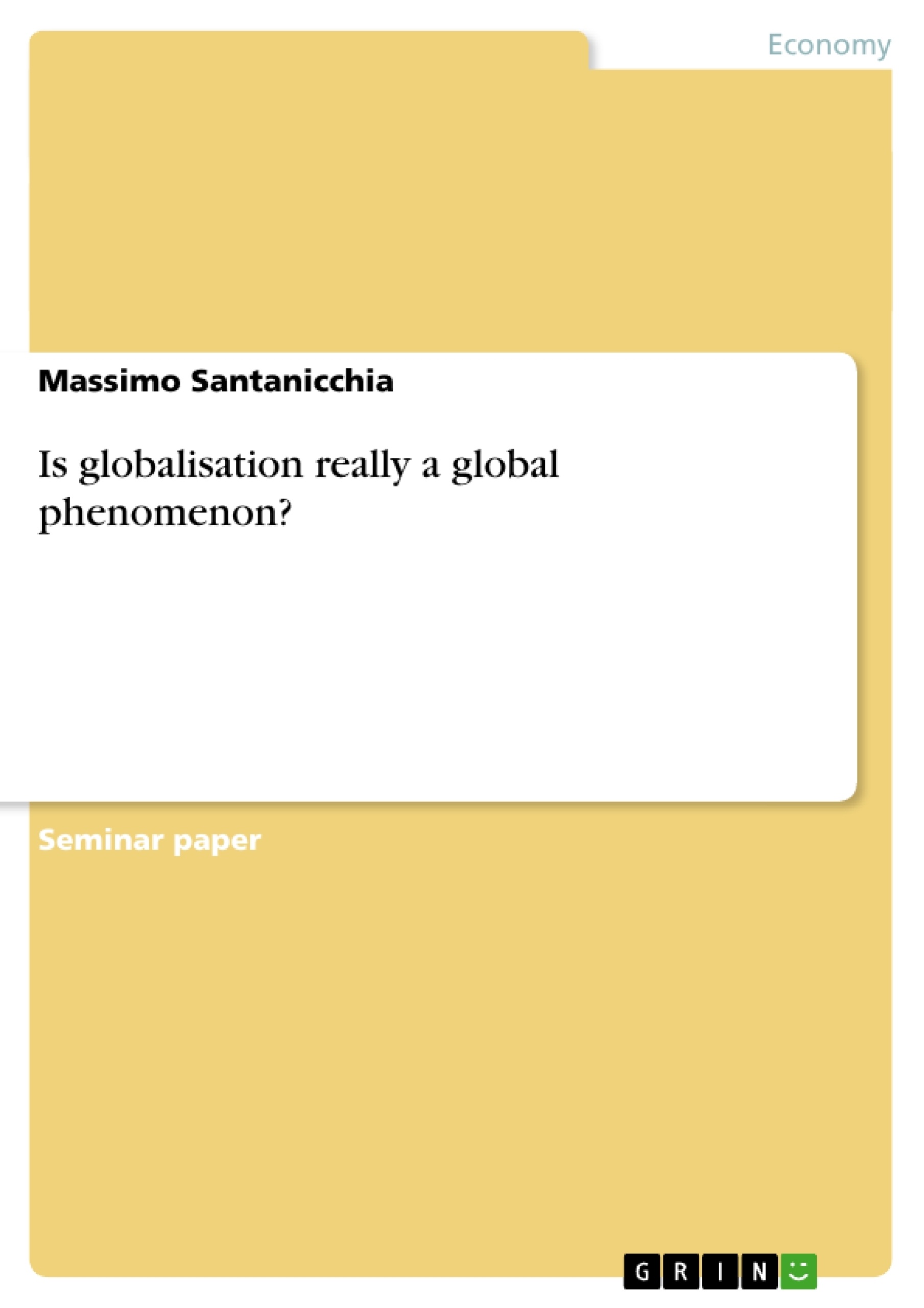What does globalization mean? Is it really a global phenomenon? What are the consequences of it in the developed and developing countries?
By studying the book of Saskia Sassen “Cities in a World Economy” and the book of Manuel Castells “The Rise of the Network Society” I try to find answers to my questions.
Table of Contents
- Introduction
- What is globalization?
- Does globalization exist?
- Spatial and social inequalities
Objectives and Key Themes
The objective of this work is to explore the concept of globalization, examining whether it is a truly global phenomenon and analyzing its consequences in developed and developing countries. This is achieved through an examination of Saskia Sassen's "Cities in a World Economy" and Manuel Castells' "The Rise of the Network Society."
- The definition and nature of globalization
- The role of cities in the global economy
- The impact of capital mobility on global economic organization
- The significance of export processing zones, offshore banking centers, and global cities
- Spatial inequalities resulting from globalization
Chapter Summaries
Introduction: This introductory chapter poses fundamental questions about globalization: What does it mean? Is it truly global? What are its effects on developed and underdeveloped nations? The author outlines the approach of investigating these questions by analyzing the works of Saskia Sassen and Manuel Castells, setting the stage for a comparative study of globalization's impact on the world economy.
What is globalization?: This chapter delves into the definition of globalization, contrasting the perspectives of Manuel Castells and Saskia Sassen. Castells defines the global economy as informational, global, and networked, emphasizing the role of information technology. Sassen, conversely, highlights the crucial material processes and infrastructures often overlooked in abstract models of globalization, arguing that dominant images of instantaneous money transmission and neutralized distance are partial representations. The chapter emphasizes the increased mobility of capital and its impact on the geographic organization of production and finance, highlighting the concentration of these activities in cities.
Keywords
Globalization, global economy, capital mobility, cities, international finance, export processing zones, offshore banking centers, global cities, spatial inequalities, informational economy, network society, Saskia Sassen, Manuel Castells.
Frequently Asked Questions: A Comprehensive Language Preview
What is the purpose of this document?
This document provides a comprehensive preview of a work exploring the concept of globalization. It includes the table of contents, objectives and key themes, chapter summaries, and keywords. The analysis focuses on examining whether globalization is a truly global phenomenon and analyzing its consequences in developed and developing countries, using the works of Saskia Sassen and Manuel Castells as key references.
What are the main topics covered in this preview?
The preview covers the definition and nature of globalization, the role of cities in the global economy, the impact of capital mobility, the significance of export processing zones, offshore banking centers, and global cities, and the spatial inequalities resulting from globalization. It specifically examines contrasting perspectives on globalization from Saskia Sassen and Manuel Castells.
What are the key themes explored in the work?
Key themes include the definition and nature of globalization; the role of cities (particularly global cities) in facilitating and shaping global economic processes; the impact of capital mobility on global economic organization; the significance of specific geographic locations like export processing zones and offshore banking centers; and the resulting spatial inequalities stemming from these global economic forces. The work also contrasts differing theoretical perspectives on globalization.
How does the preview summarize the chapters?
The preview provides summaries of the introduction and the chapter defining globalization. The introduction sets the stage by questioning the nature and scope of globalization and outlining the methodology of using Sassen and Castells' work for analysis. The globalization chapter delves into contrasting definitions from Castells (emphasizing informational networks) and Sassen (highlighting material infrastructures), examining the increased mobility of capital and its impact on geographic organization.
Which authors are central to this work’s analysis?
The work draws heavily on the theories and analyses of Saskia Sassen and Manuel Castells, whose perspectives on globalization are compared and contrasted throughout the text to offer a multi-faceted understanding of the phenomenon.
What are the key words associated with this work?
Key words include: Globalization, global economy, capital mobility, cities, international finance, export processing zones, offshore banking centers, global cities, spatial inequalities, informational economy, network society, Saskia Sassen, Manuel Castells.
What is the overall objective of the work?
The main objective is to investigate the concept of globalization, examining whether it is truly a global phenomenon and analyzing its impact on both developed and developing countries by studying the works of influential scholars in the field.
- Quote paper
- Massimo Santanicchia (Author), 2002, Is globalisation really a global phenomenon?, Munich, GRIN Verlag, https://www.grin.com/document/212644




